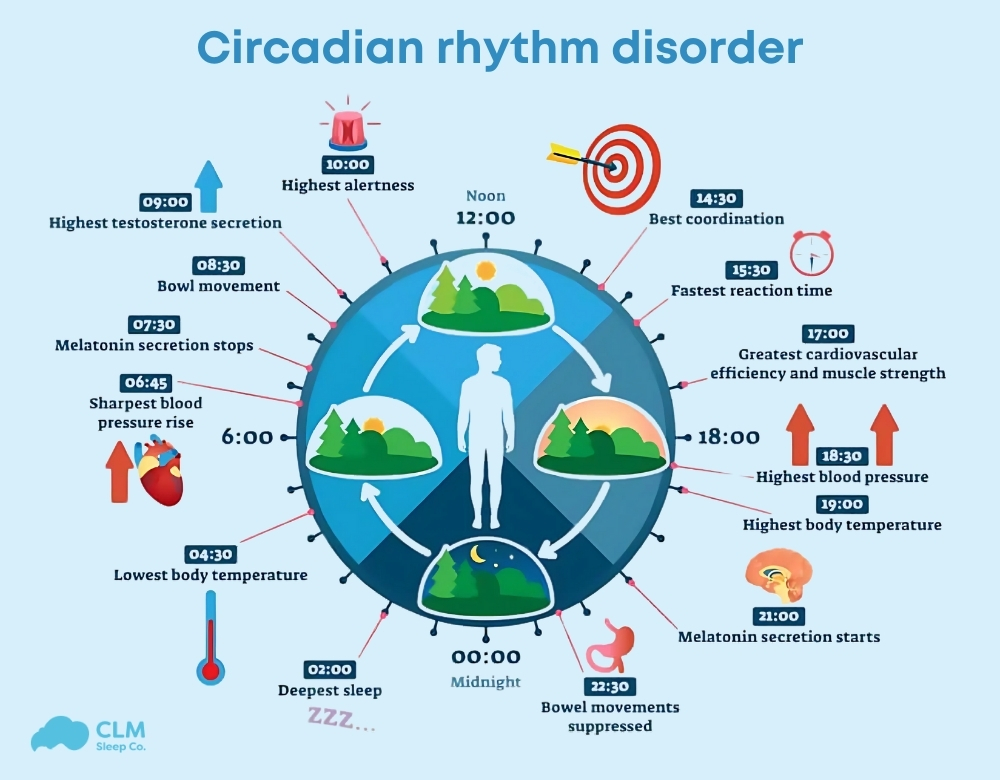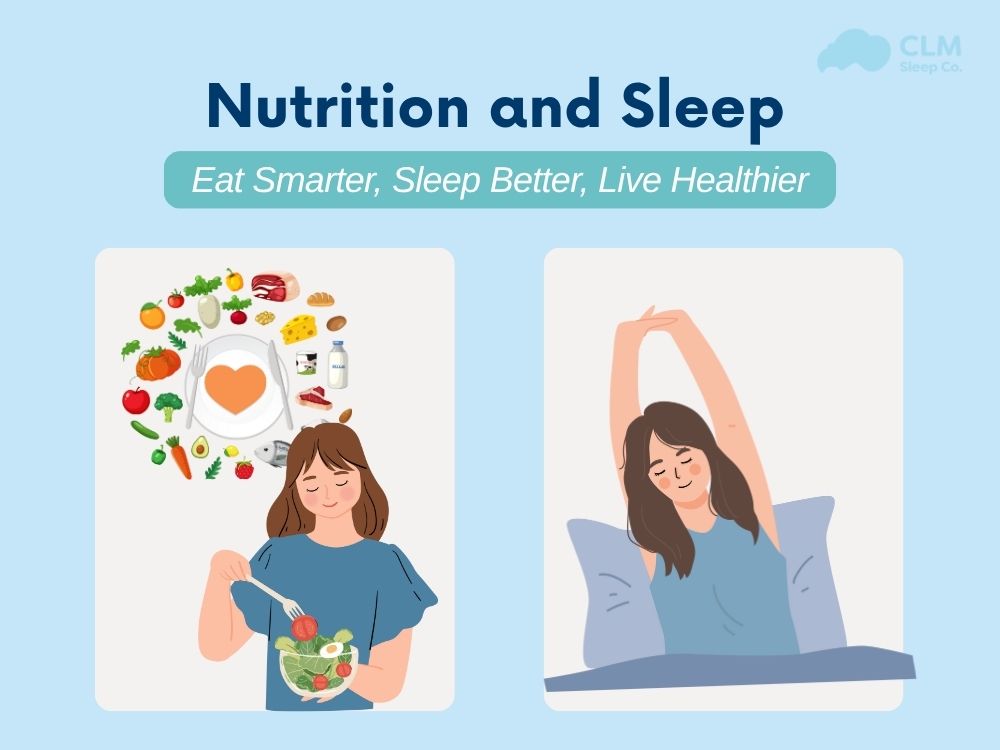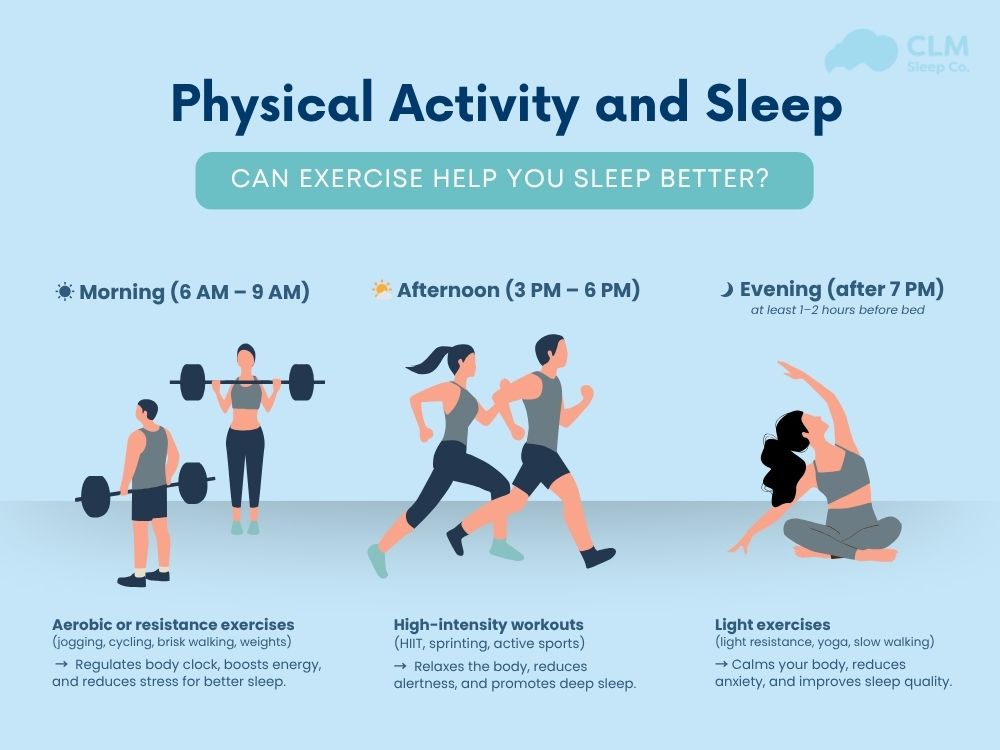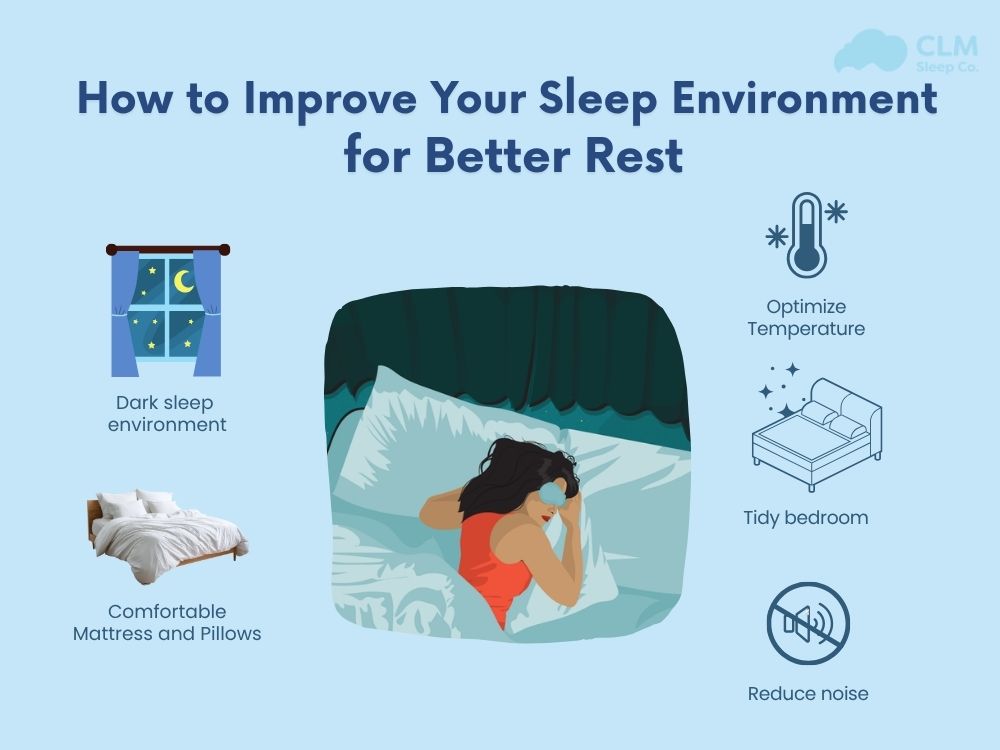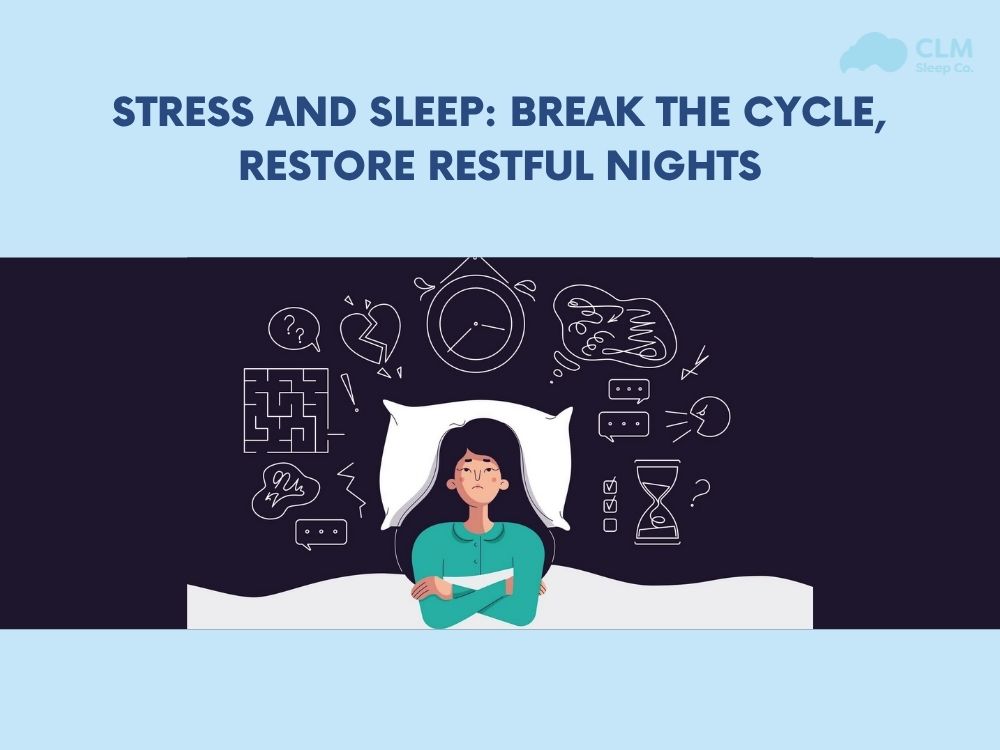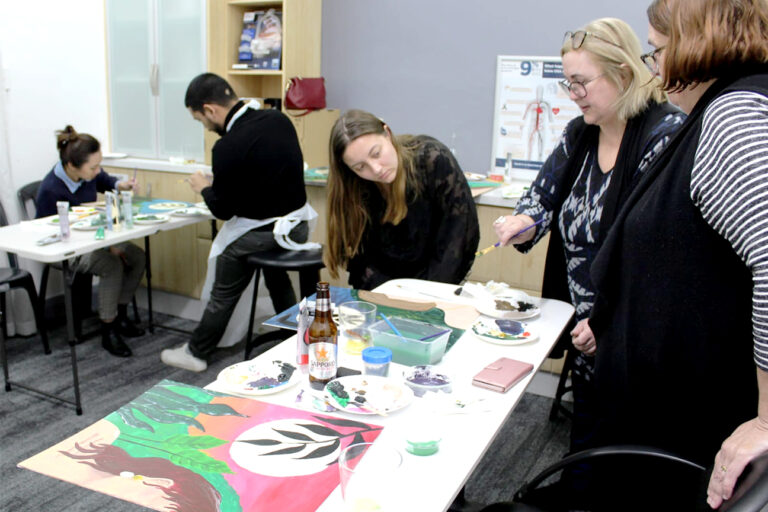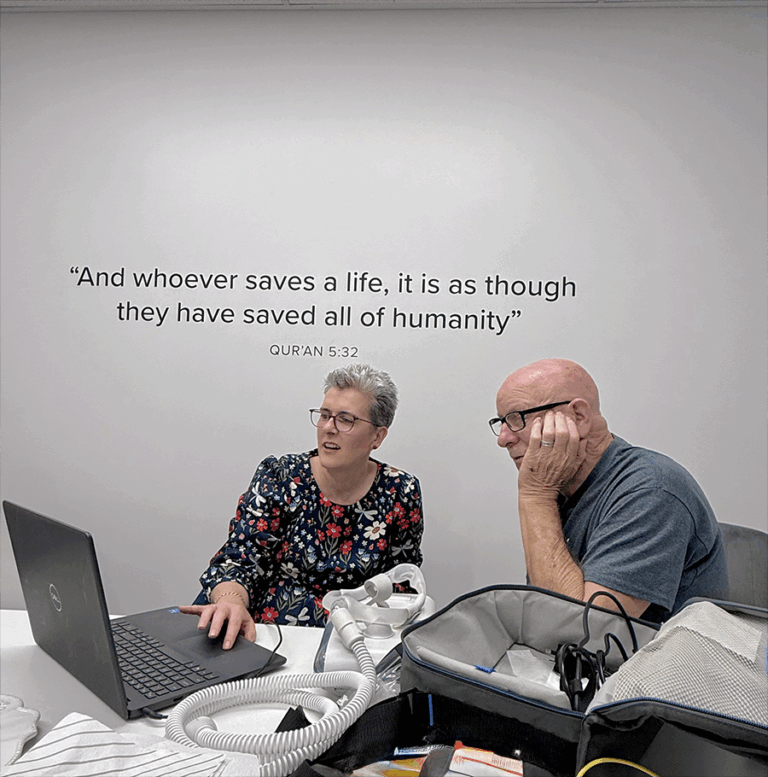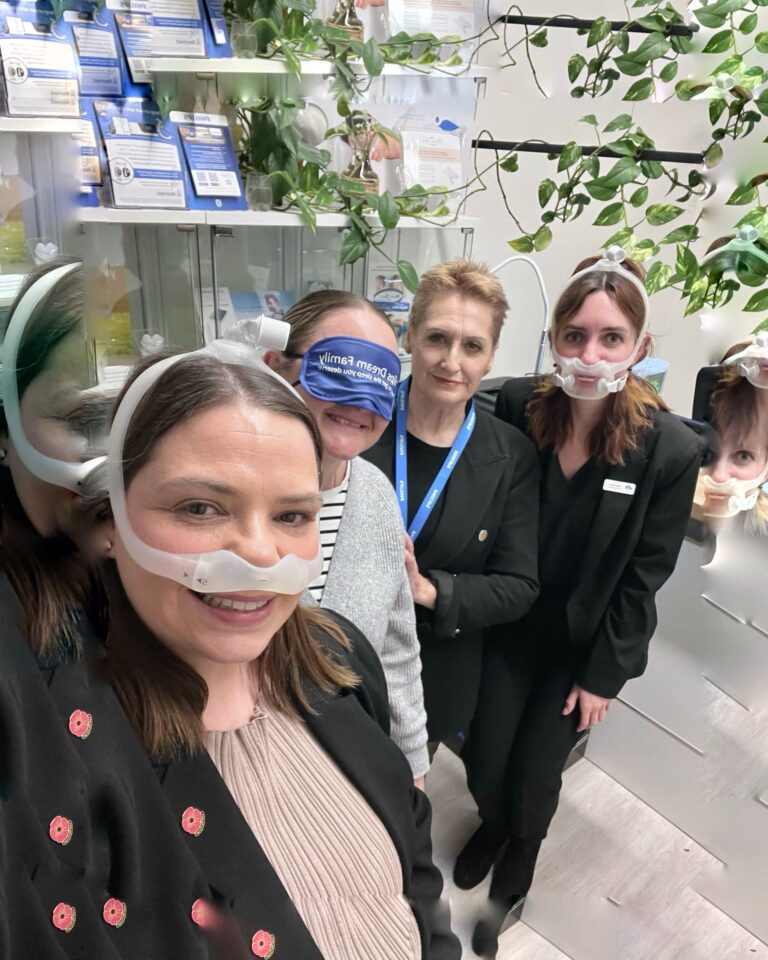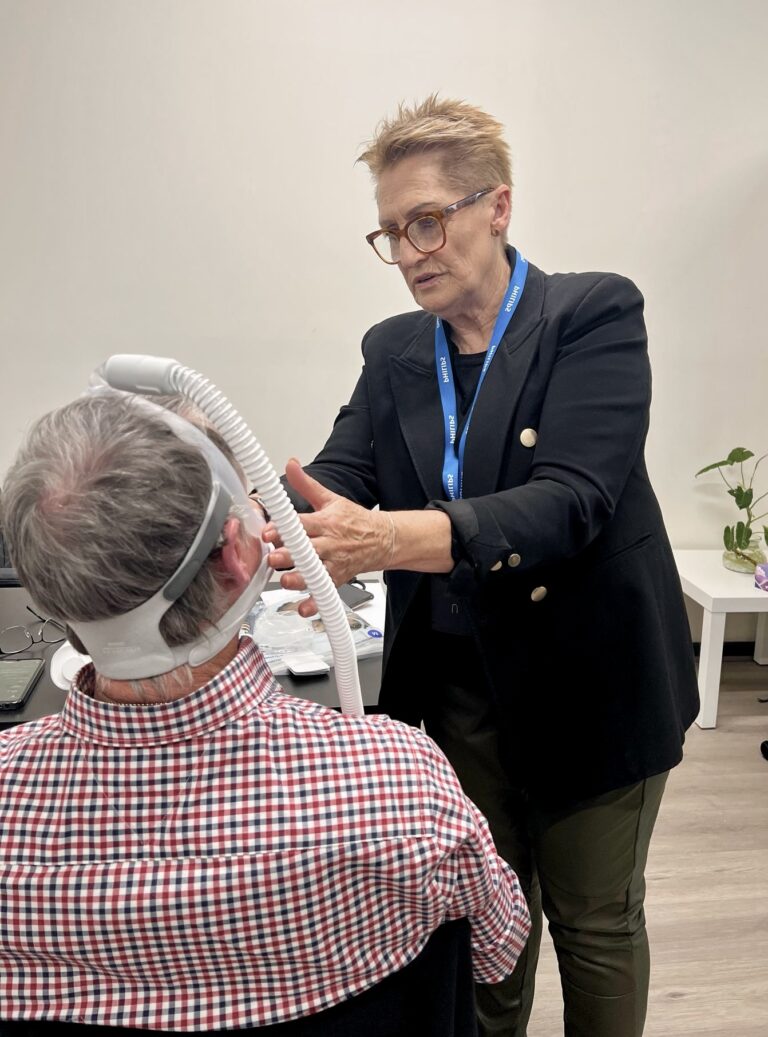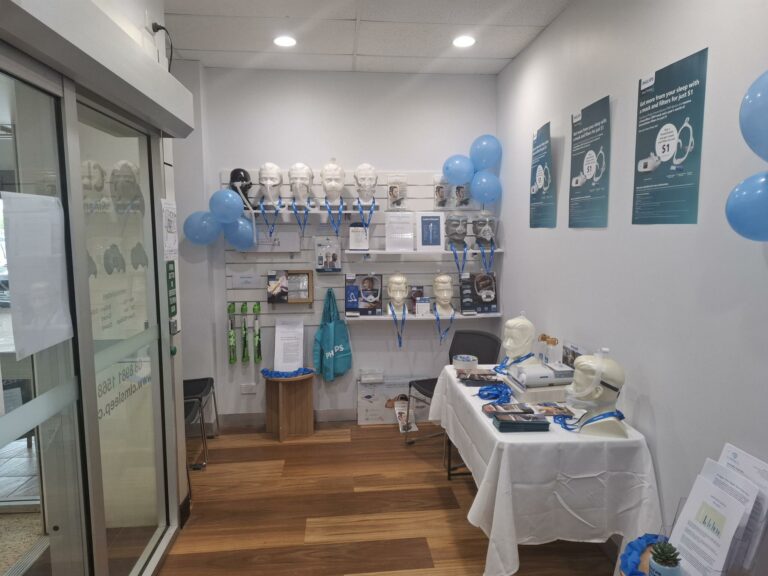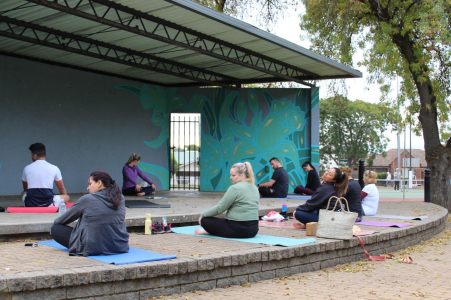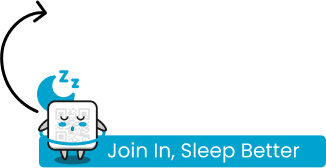Circadian rhythm disorder can arise from the disordered functioning of circadian biological rhythms that regulate sleep-wake cycles, and manifest as poor sleep quality and excessive daytime fatigue, thereby sometimes additionally contributing to long-term development of illness in patients. What is more important is the understanding of its etiology, symptoms, and available treatments that will help to restore normalcy and better sleep quality. Learn to master your circadian rhythms – to lead you to better health.
What is Circadian Rhythm Disorder?
A circadian rhythm sleep disorder is a condition that disrupts this normal, synchronized operation involving these systems that regulate when we sleep and wake up. This system entails the cooperation of several different body systems and is poorly coordinated in individuals with circadian rhythm sleep disorders. These conditions are alternatively termed circadian rhythm sleep-wake disorders or circadian rhythm sleep disorders.
The word “circadian” is derived from the Latin word circa dies, which means “around the day.” A circadian rhythm is like an internal clock that tells your body when to sleep and when to wake up. That system, which involves a number of different body systems, is out of step in people with circadian rhythm disorders. For most individuals, the circadian rhythm operates automatically, enabling smooth sleep-wake cycles. However, for those with circadian rhythm disorders, this natural process may not function as expected.
The circadian rhythm is important to maintain general health and wellness. It coordinates different physiologic functions related to the following:
- Sleep Regulation: Maintains a balance between the hours of rest and waking hours, which can be adaptive to perform physical and mental activities.
- Hormonal Balance: Hormones like melatonin (sleep hormone) and cortisol (stress hormone) balance are regulated.
- Metabolism: It maintains the pangs of hunger, digestion, and energy utilization during the day.
- Mental Health: Supports emotional stability and cognitive function.
- Immune Function: Aligns immune responses with optimal times for repair and defense.
Worse, disruptions to this rhythm perpetuate chronic sleep issues plus mental health disorders further decrease immune systems, and add metabolic conditions such as obesity and diabetes. Preserving a healthy circadian rhythm begets health in the long run and optimum daily functioning.
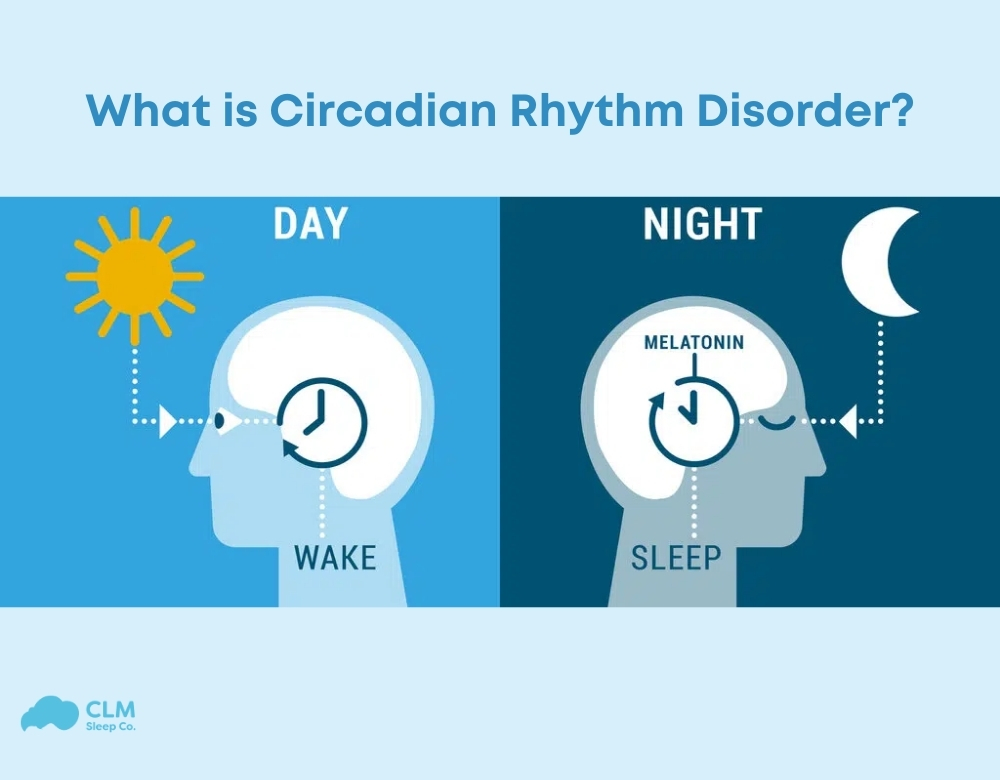
Causes of circadian rhythm disorder
The following are the factors responsible for circadian rhythm disorder:
Shift Work
Irregular and rotating work shifts throw the natural sleep-wake cycle of the body into confusion. Mismatch commonly leads to chronic sleep loss plus fatigue and difficulty adjusting to work timing. Over the long term, health is undermined and so, too, is productivity.
Irregular Sleep-Wake Rhythm Disorder (ISWRD)
The sleep of patients is fragmented due to lack of normal entrainment. It is most frequently observed in patients suffering from neurological conditions and people leading irregular lifestyles. Poor sleep quality and daytime sleepiness are common presentations.
Delayed Sleep Phase Disorder
Delayed Sleep Phase Disorder (DSPD) is a condition in which individuals struggle to fall asleep and wake up at socially conventional times. This happens because their internal body clock is delayed, often leading to very late bedtimes and difficulty waking up in the morning. DSPD is particularly common among teenagers and young adults.
Advanced Sleep Phase Disorder
Advanced Sleep Phase Disorder (ASPD) is a condition where individuals experience involuntary sleepiness much earlier than desired, often accompanied by waking up too early in the morning. This sleep disorder typically affects older adults and can significantly interfere with both social and professional activities. Over time, early awakenings may lead to inadequate sleep.
Non-24-Hour Sleep-Wake Rhythm Disorder (N24SWD)
This is quite common among blind individuals. The internal clock does not synchronize with the normal 24-hour day. There is a progressive shift in sleep-wake times each day, which results in quite erratic schedules. It significantly impairs daily functioning.
Jet Lag
The passage through so many time zones disrupts any correspondence between the internal clock and the time of the day. Thus, it temporally upsets sleep, fatigue during the day, and difficulty concentrating. Symptoms eventually disappear as readjustment occurs.
Exposure to Light at Night
Artificial light, especially those from screens, tends to dampen melatonin production and push the onset of sleep further. It interferes with the usual circadian rhythm and makes sleep difficult. Possible long-term effects in prolonged exposure: worsening sleep over time.
Poor Sleep Hygiene
Irregular sleep patterns, late-night use of screens, and stimulants disrupt the body’s natural sleep-wake cycle. In such conditions, the body is not allowed to set itself under a routine. Gradually, it leads to poor quality sleep and health problems.
Substance Use
Alcohol, caffeine, and nicotine impede the body from regulating a proper circadian cycle. Caffeine delays sleep, and alcohol disrupts sleep later on in the night. Chronic use of substances exacerbates sleep issues.
Mental Health Conditions
Conditions such as depression and anxiety disturb the sleep-wake transition. Such conditions may result in insomnia, excessive sleeping, or erratic sleep patterns. This turns out to be a vicious circle, further deteriorating the quality of sleep and deterioration of mental health.
Age-Related Changes
Aging alters the circadian rhythm, often causing earlier bedtimes and wake-up times. Reduced melatonin production and hormonal changes also contribute to sleep difficulties. These changes can disrupt overall sleep quality in older adults.
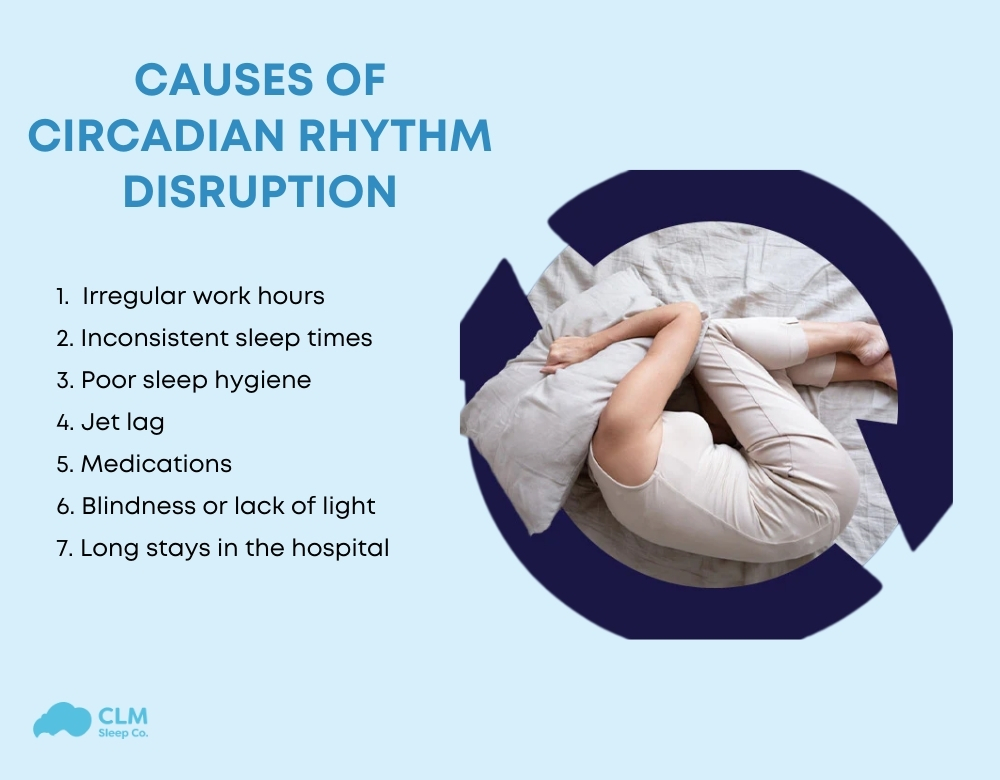
Symptoms of Circadian Rhythm Disorder
Here are some symptoms of circadian rhythm disorder
- Insomnia: Difficulty falling or staying asleep, often due to misalignment between the internal clock and desired sleep times.
- Difficulty Sleeping at Regular Times: One has problems keeping to a regular sleep schedule, which leads to irregular and fragmented sleep.
- Fatigue: Feeling tired and lacking energy throughout the day, despite getting enough sleep.
- Dizziness or Lightheadedness: An unbalanced or unsteady feeling that may result from disrupted sleep patterns.
- Mood Swings: Emotional instability, including irritability or depression, due to poor-quality sleep or lack of rest.
- Difficulty Concentrating: Trouble focusing or maintaining attention, affecting daily tasks and cognitive performance.
- Abnormal Hunger or Cravings: Disruptions in appetite regulation, leading to cravings for unhealthy foods or irregular eating habits.
- Headaches: Frequent or recurring headaches, often linked to insufficient or inconsistent sleep.
- Reduced Physical Performance: Decreased stamina, strength, or coordination, affecting physical activities and fitness.
- Slower Reaction Times: Delayed responses and impaired reflexes, increase the risk of accidents or errors.
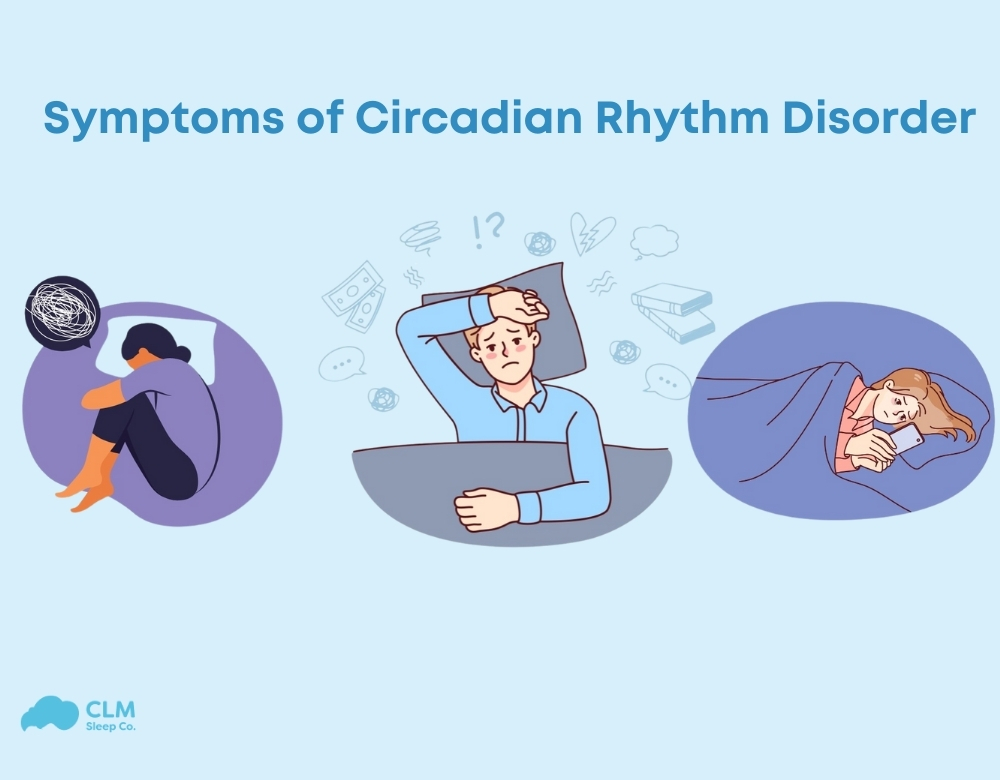
Diagnosis of Circadian Rhythm Disorder
Here are some diagnosis of circadian rhythm disorder:
- Sleep Diary: Patients record their sleep-wake times, duration, and quality over 1-2 weeks. This helps identify patterns and irregularities in the circadian rhythm.
- Actigraphy: A wearable device tracks movement and light exposure to monitor sleep patterns over several days or weeks. It provides objective data on sleep timing and duration.
- Polysomnography: An overnight test records brain activity, heart rate, breathing, and body movements during sleep. It is used to rule out other sleep disorders like sleep apnea.
- Melatonin Testing: Measures melatonin levels in saliva or blood to evaluate the timing of melatonin production, which indicates circadian rhythm alignment.
- Light Exposure Assessment: Evaluate the patient’s exposure to natural and artificial light throughout the day. This helps determine if light-related factors are affecting their circadian rhythm.
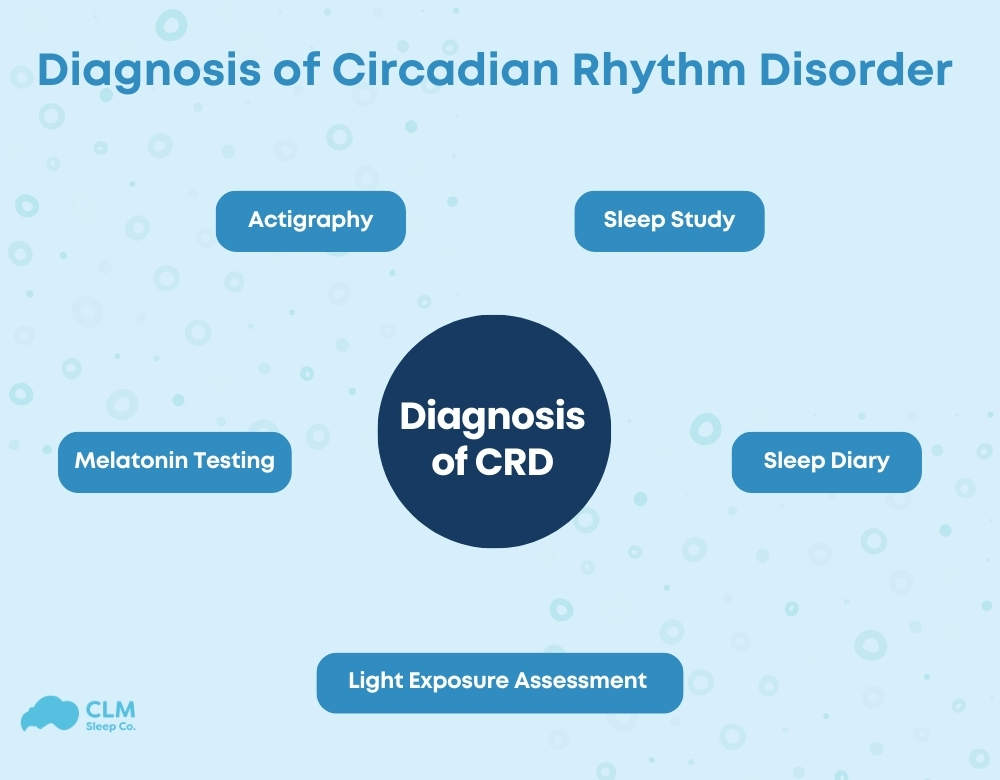
Treatment Options
Light Therapy
- Bright Light Therapy: This involves exposure to bright light at specific times of the day to help realign the body’s internal clock. It is particularly effective for conditions like delayed sleep phase disorder (DSPD) and seasonal affective disorder (SAD). Light therapy typically involves sitting near a light box that emits 10,000 lux of light, mimicking the natural light of the morning. The treatment duration is usually around 30 minutes to 1 hour, depending on the severity of the condition.
- Dawn Simulation: Dawn simulation gradually increases light intensity to simulate sunrise, which helps signal to the body that it is time to wake up. This type of light therapy is typically used for individuals who struggle with waking up too early, as in advanced sleep phase disorder (ASPD). The process mimics the natural progression of daylight, gently waking individuals without the shock of an abrupt alarm.
Lifestyle and Behavioral Changes
- Sleep Hygiene: Proper sleep hygiene involves creating an environment and establishing habits that support quality sleep. Key practices include maintaining a consistent sleep-wake schedule, keeping the bedroom cool and dark, and avoiding caffeine, alcohol, and heavy meals close to bedtime. Engaging in relaxation techniques such as deep breathing or meditation before bed can also enhance the quality of sleep.
- Exposure to Natural Light: Natural light is a powerful regulator of the circadian rhythm. Spending time outside during daylight hours, especially in the morning, helps the body align with the natural light-dark cycle. For those who work indoors or live in areas with limited sunlight, using light therapy boxes can supplement natural light exposure.
- Avoiding Blue Light at Night: Blue light, emitted by electronic devices such as smartphones, tablets, and computers, can interfere with melatonin production, making it harder to fall asleep. To prevent disruption of the circadian rhythm, it’s important to reduce exposure to screens in the evening, especially one to two hours before bedtime. Using blue light-blocking glasses or installing apps that reduce blue light on devices can help mitigate its effects.
Chronotherapy
Chronotherapy involves gradually shifting your sleep-wake schedule to reset your circadian rhythm. For those with conditions like delayed sleep phase disorder (DSPD) or advanced sleep phase disorder (ASPD), this method is effective. The adjustment is typically made in small increments, such as 15 to 30 minutes earlier or later each day, until the desired sleep-wake times are achieved. This approach helps the body adapt naturally to a new schedule without causing significant disruption.
Melatonin Supplements
Melatonin, a hormone that helps regulate the sleep-wake cycle, can be taken in supplement form to help realign the circadian rhythm. It is particularly useful for individuals with jet lag, shift work-related sleep issues or delayed sleep phase disorder. Melatonin supplements are typically taken 30 minutes to an hour before bedtime, and they help signal to the body that it’s time to sleep. However, timing and dosage are crucial, as improper use can lead to further sleep disturbances. It’s advisable to consult with a healthcare provider before starting melatonin supplements.
Cognitive Behavioral Therapy for Insomnia (CBT-I)
Cognitive Behavioral Therapy for Insomnia (CBT-I) is a structured, evidence-based treatment designed to improve sleep by addressing the behaviors, thoughts, and emotions that interfere with sleep. CBT-I typically involves techniques such as stimulus control (associating the bed with sleep only), sleep restriction (limiting time spent in bed to increase sleep efficiency), and cognitive restructuring (identifying and challenging negative thoughts about sleep). This therapy is highly effective for individuals with insomnia, particularly when it is linked to circadian rhythm disruptions.
Medication
In some cases, medication may be prescribed to help manage symptoms of circadian rhythm disorders. For example, sleep aids like benzodiazepines or non-benzodiazepine sedatives may be used to promote sleep during the adjustment phase of chronotherapy or when other treatments are not effective. Wake-promoting agents, such as modafinil, may be prescribed for individuals who need help staying awake during the day. However, medications should only be used under the supervision of a healthcare provider, as they may have side effects or lead to dependency if used long-term.
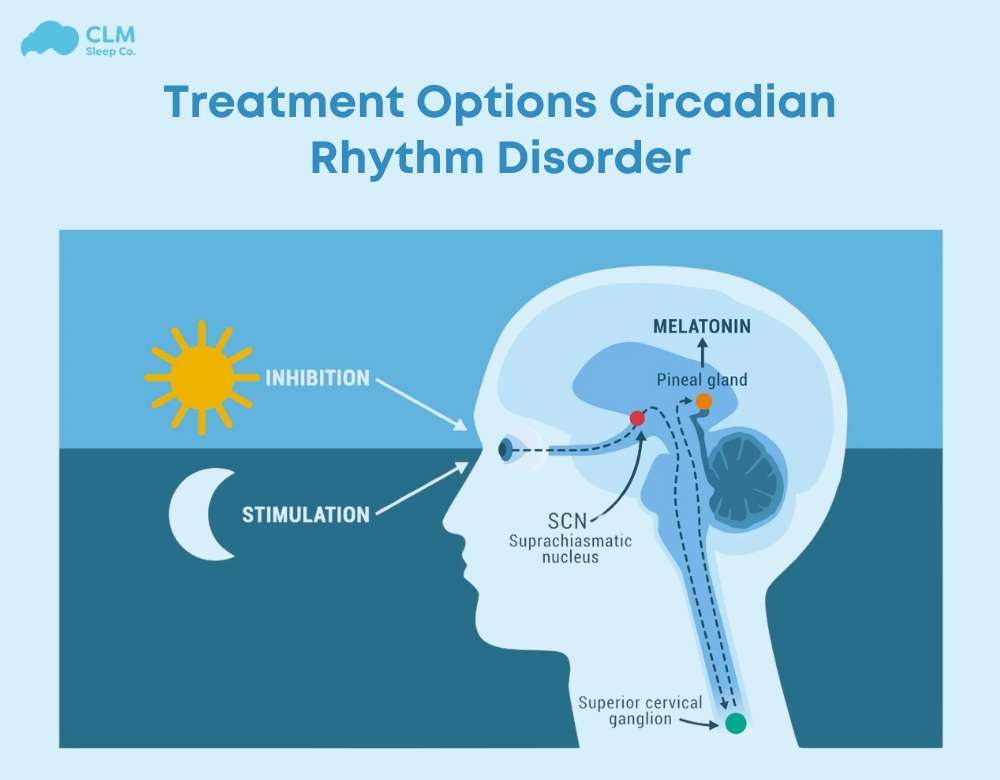
See more:
Sleep disorder devices at CPAPDiscount
Soft and comfy homewear for kids at Snuggle Cubs
Impact of Circadian Rhythm Disorder on Health
Circadian rhythm disorders can significantly impact overall health if left untreated. The misalignment of the body’s internal clock disrupts critical biological processes, leading to poor sleep quality and insufficient rest. Over time, this can contribute to mental health issues such as depression and anxiety due to persistent fatigue and mood instability. Physically, the lack of restorative sleep increases the risk of cardiovascular problems, including hypertension and heart disease. Additionally, the disruption may impair immune function, making individuals more susceptible to infections and chronic conditions. Early diagnosis and intervention are crucial to prevent these long-term health consequences.
See more: How to fix circadian rhythm
Conclusion
Circadian rhythm disorders disrupt the natural sleep-wake cycle, significantly impacting physical, mental, and emotional health. From difficulties in sleeping to long-term risks like cardiovascular problems and anxiety, these disorders highlight the importance of maintaining a well-regulated circadian rhythm. Fortunately, with appropriate diagnosis and treatments such as light therapy, lifestyle changes, melatonin supplements, and CBT-I, it is possible to restore balance and improve overall well-being. Prioritizing sleep hygiene and seeking professional guidance when needed can help individuals regain control over their sleep patterns and lead healthier, more productive lives.
For more expert tips and solutions to improve your sleep quality and manage circadian rhythm disorders effectively, visit CLM Sleep today. Let us help you achieve the restful sleep you deserve!
